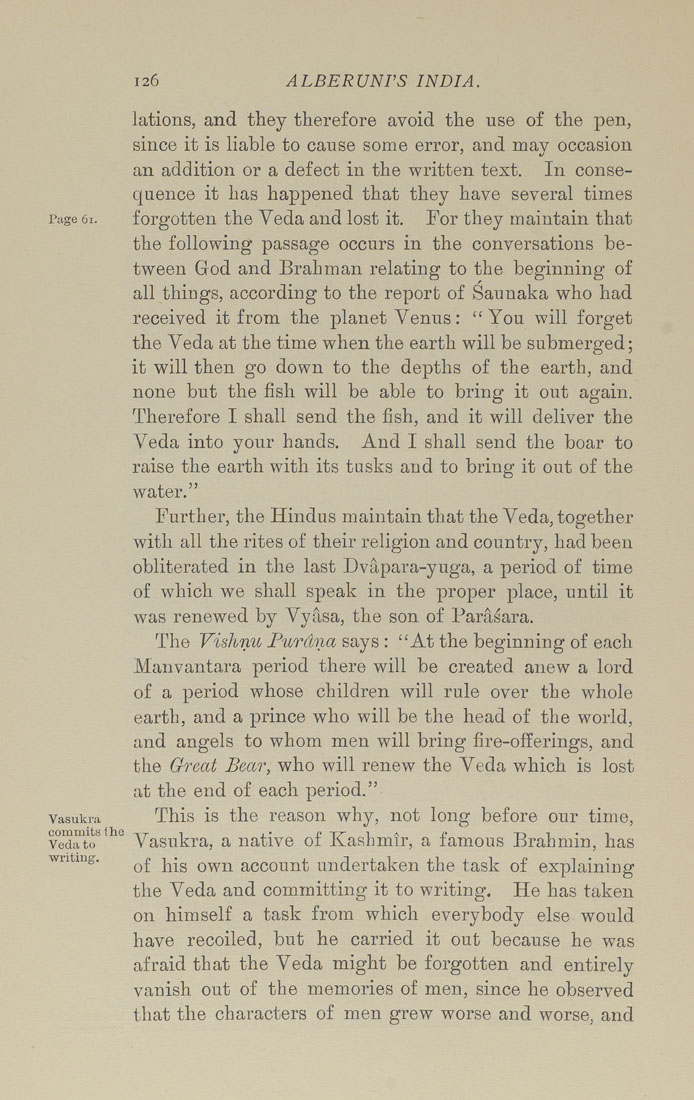Bīrūnī, Muḥammad ibn Aḥmad, Alberuni's India (v. 1)
(London : Kegan Paul, Trench, Trübner & Co., 1910.)
|
||
|
|
|
|
| Page 126 |

126 ALBERUNPS INDIA. lations, and they therefore avoid the use of the pen, since it is liable to cause some error, and may occasion an addition or a defect in the written text. In conse¬ quence it has happened that they have several times Page 6i. forgotten the Veda and lost it. For they maintain that the following passage occurs in the conversations be¬ tween God and Brahman relating to the beginning of all things, according to the report of Saunaka who had received it from the planet Venus: "You will forget the Veda at the time when the earth will be submerged; it will then go down to the depths of the earth, and none but the fish will be able to bring it out again. P'herefore I shall send the fish, and it will deliver the Veda into your hands. And I shall send the boar to raise the earth with its tusks and to bring it out of the water." Further, the Hindus maintain that the Veda, together with all the rites of their religion and country, had been obliterated in the last Dvapara-yuga, a period of time of which we shall speak in the proper place, until it was renewed by Vyasa, the son of Parasara. The Vishnu Purdna s&jB : "At the beginning of each Manvantara period there will be created anew a lord of a period whose children will rule over the whole earth, and a prince who will be the head of the world, and angels to whom men will bring fire-offerings, and the Great Bear, who will renew the Veda v/hich is lost at the end of each period." Vasukra This is the reason why, not long before our time, commits i he ^r i j.* r tt" i a r? ti i • i vedato Vasukra, a native ot Kashmir, a lamous Brahmin, has wn mg. ^£ j^^.^ ^^^ account undertaken the task of explaining the Veda and committing it to writing. He has taken on himself a task from which everybody else would have recoiled, but he carried it out because he was afraid that the Veda might be forgotten and entirely vanish out of the memories of men, since he observed that the characters of men grew worse and worse, and |
| Page 126 |







